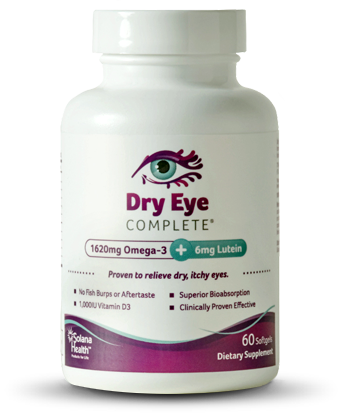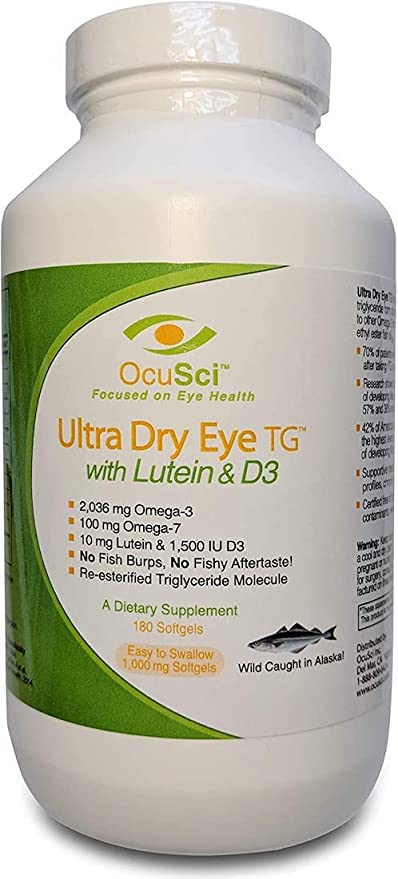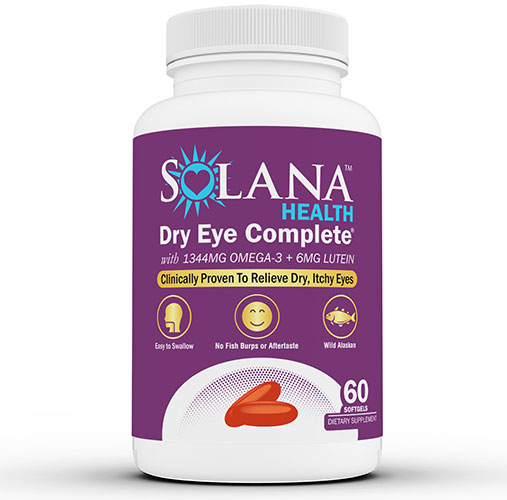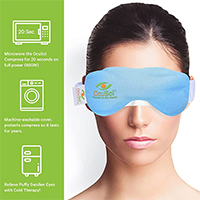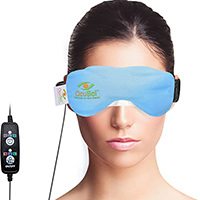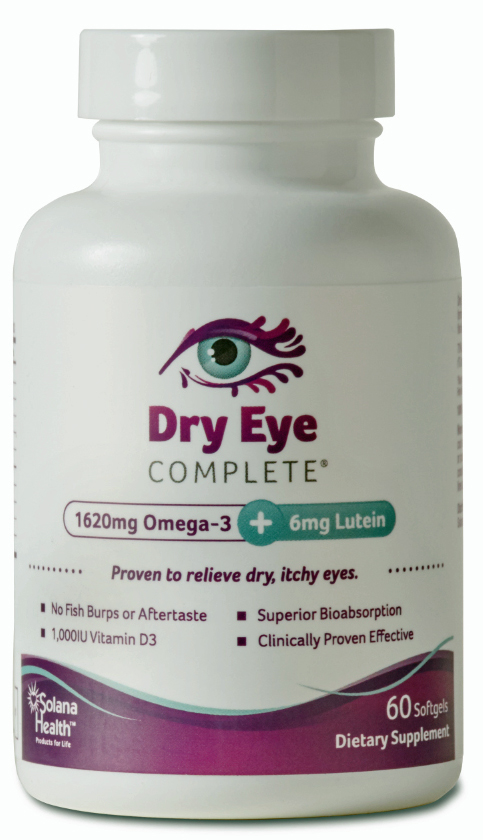People suffer from dry eye, dry eye syndrome, or DES, when there is an issue with their tear production. It can be that they don’t produce enough tears, that there is insufficient oily substance or insufficient water, or that they evaporate too quickly. Many people who have DES also suffer from inflammation of the eye and this is where one of the biggest problems occur.
When the inflammation isn’t treated, the cornea can become scarred, it can ulcerate and it can hurt a lot. In extreme cases, this can lead to some loss of vision as well, although it is very uncommon for this to be permanent. What is common, however, is for vision to become blurred. This can either be symptomatic of DES progressing to something more serious, or simply be a part of DES in general.
It is very rare for DES to cause a permanent problem. However, even for the short term, having blurry vision can be very difficult. It often makes it impossible to perform certain tasks, such as operating machinery, driving a car, working behind a computer, or even reading a book. When you add to this the discomfort of dry eye, it becomes clear why you have to treat the issue as soon as possible.
What Causes Dry Eye?
There are a number of different reasons as to why you may have dry eye. However, generally speaking, it points to a problem with your tear film. This film is renewed every time you blink and is designed to keep your eyes moist and lubricated.
Two issues are of importance and someone with DES will usually have a malfunction in one or both of these:
- The tear film contains a watery substance, which allows you to have clear vision and which keeps your eyes moist.
- The tear film contains an oily substance, which keeps the eyes lubricated and stops the tears from evaporating.
There are a number of common reasons as to why people suffer from dry eye:
- Age
- Certain prescription drugs
- Wearing contact lenses
- Various health problems
- Infections
- The environment
Blurry Vision
When you are incapable of seeing the finer details of things, you are suffering from blurry vision. This can be caused by a number of different things:
- Being near- or farsighted. This can be corrected with lenses, glasses, or laser/LASIK eye surgery.
- Health conditions like stroke or migraine
- Certain types of medication
- Dry eye syndrome
As you can see, it is important not to assume that your blurry vision is caused by dry eye and self-medicate. Always see a medical professional if you have reason to believe there is something wrong with your eyes.
Blurry vision, whether unilateral (one eye) or bilateral (both eyes), should always be investigated. In most cases, it is nothing to worry about. However, when there is something to worry about, it can be something serious, such as permanent eye disease. Hence, always make sure that you visit your health professional, even if it is just to rule out something more serious. In the worst case scenario, blurry vision can eventually lead to full blindness.
Symptoms that May Come with Blurry Vision
Blurry vision, in the main, is an inconvenience. However, if left untreated, it can lead to a number of other symptoms as well. This is true whether you are suffering from blurry vision due to DES or due to another condition that affects the eye. These other symptoms include:
- Spots and floaters
- Sensitivity to light (photophobia)
- Discharge from the eye
- Pain in the eye
- Loss of central vision
- Loss of peripheral vision
- Itchy eyes
- Dry eyes
- Poor night vision
- Increased tear production
- Bleeding from the eye
- Red bloodshot eyes
- Poor near vision
The eyes are very complex organs and, besides the skin, the only ones that are directly exposed to the environment. As such, there are many different things that can affect them as well. Unfortunately, for many reasons, we have a tendency to self-diagnose and self-medicate, but this is never a good option with blurry vision.
Why Do You Experience Blurry Vision?
Clearly, there are many reasons as to why your vision may be blurry. It can be quite difficult for a physician or ophthalmologist to determine exactly what the cause is with a patient. In most cases, it may simply be dry eye. However, it is vital that they perform all the necessary tests to confirm this or rule it out. You must never feel like you are an inconvenience for having your eyes checked out, even if it does turn out that you simply needed some eye drops. Some of the tests that are likely to be carried out include:
- A slit-lamp test, whereby a doctor will focus on the back and front of the eye to see whether it works properly. The intensity of the slit-lamp can be adjusted to make sure your eye responds properly to light. Before you have this examination, your eye will be numbed and you will also be given fluorescein. This substance lights up any abnormalities in the eye and enables the ophthalmologist to check the intraocular pressure.
- A refraction test, which simply looks at whether you need a prescription for near- or farsightedness. A refractor or phoroptor is used for this, which you will look through while reading a so-called ‘Snellen’ eye chart.
- Tonometry, which is used to measure the pressure on your eye. This is what the fluorescein is used for. A tonometer is linked up to the slit-lamp and from where it will touch the surface of your eye in order to measure what the pressure is. Other doctors prefer the air puff test, as this is often less uncomfortable for patients.
If these tests do not show any abnormalities, and you are not presenting with any symptoms indicative of anything serious, it is likely that you are suffering from dry eye.
Is Relief from Blurry Vision Possible?
There are many different treatment options for blurry vision, which all depend on what the reason for your blurry vision is. If you are suffering from dry eye, it is likely that you will be provided with eye drops or an eye ointment (or both) to ensure the moisture levels of your eyes return to normal. Blurry vision is not always symptomatic of DES, however, and it may be, therefore, that you are straining your eyes more than usual. Hence, you may also be told to do some of the following:
- Use reading glasses if you are struggling with the sharpness of things that are close by
- Try a different prescription of glasses
- Clean your glasses
- Use eye drops or ointment, either prescription or over the counter
- Have surgery
Get Blurry Vision Relief with Omega 3’s
Dry Eye Complete
- Clinically Proven to Relieve Dry Eyes
- 1620mg Omega-3, 6mg Lutein, 1,000IU Vitamin D3
- Sourced from highly sustainable fisheries: wild caught Nordic sardines and anchovies
- 100% All Natural, Non GMO, Gluten Free, Dairy Free. Tested & Certified Free of Contaminants
- NO fish burps or aftertaste guaranteed
- Optometrist Recommended!
- Consumption of Omega 3 is recommended by American Eye Institute.
- Great for MILD & SEVERE dry eye
Can You Prevent Blurry Vision?
There are many cases in which blurry vision cannot be prevented. Near- or farsightedness, for instance, usually presents itself at a very early age and is genetic (although injury to the eye can make it worse). At the same time, there are certain things that you can do in order to prevent it. Keeping your eyes moist and well-lubricated, or preventing dry eye, in other words, is one of the most important things. Secondly, you must go for regular eye examinations. If there are any underlying health conditions that are causing the blurry vision, they will be picked up on then. Furthermore, if it is caused by dry eye, you will be able to identify this and take measures to avoid it. The table below shows just how often you should have your eyes professionally checked.
| Age | How Often You Should Have Your Eyes Checked |
| 0 – 6 months | At least once each year |
| 6 months – 18 years | Every two to four years |
| 19 – 39 years | Every three to five years |
| 40 – 64 years | Every two to four years |
| 65 | Every one to two years |
Resources and References:
- Facts About Dry Eye – General information on the dry eye syndrome. (National Eye Institute)
- Dry Eyes – Basic information on dry eye, including its symptoms. (Mayo Clinic)
- Dry Eye Treatment: Getting Relief from Dry Eyes – Treatments for dry eye. (All About Vision)
- Dry Eye – Information on dry eye. (American Optometric Association)
- What Is Dry Eye Syndrome? What Causes Dry Eye Syndrome? – Information on dry eye, including its causes. (Medical News Today)

